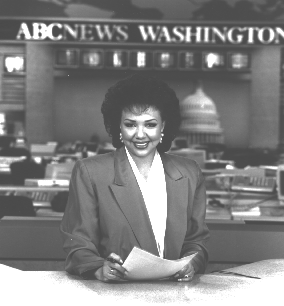Page 111
[Begin Tape 1, Side A]
Moorhus: At the last session, we were talking about the Women's Advisory Board here at ABC, but in going back over my notes, I saw that while you were at NBC, you had hosted a women's public affairs program on the affiliate, WRC. That was in pre-'82, right?
Simpson: Yes, it would have been like '80, '81. It was a show called "Her-Rah," which was for a local station. It was kind of interesting. I was working for the network, but they had asked me to do it, and it was a show for and about women and women's issues, and it lasted for about a year and a halfóa year and a half that I did the show, and then they canceled it for budget cuts.
Moorhus: How does that work for you to work for a local, as well as for the network?
Simpson: It was volunteer. WRC is an O&O, an "owned and operated" station of NBC, so they called and said, "Could we use Carole as a host for this program?" We have to make nice-nice to the affiliates, and at that time, they were hoping to syndicate it to other O&O stations of NBC. So having a network correspondent rather than a local correspondent host it was important to them. It was just another part of my job. I didn't get any extra money for it or anything.
Moorhus: Do you know why you were selected particularly?
Simpson: Probably because I had been identified for a long time as someone concerned about women and women's rights, and the producer requested me to do that. I would think it was just purely because I've always been in the forefront.
Moorhus: And there wasn't any particular benefit to you for doing that?
Simpson: Yes, the extra air time on a local station in Washington, although I think they ran it at 6:30 on Sunday mornings. It was a public affairs show, so it didn't have a huge audience. They never gave it a chance to have a good audience by putting it in a good time slot, but I learned a lot of things and got an opportunity to be more aware of a lot of issues involving women that I hadn't been aware of before, so I learned a lot that I think helped me later in women's concerns. There were all kinds of things, like we had Miss Manners [Judith Martin] on. Sometimes it would be a funny show, sometimes it would be women in business and the trials of being in business in Washington. We also had a mechanic on, showing women how to take care of their cars. Things that I didn't know about. It was really quite a nice show. It was too bad it was just kind of a throwaway public affairs thing.
Moorhus: Was it just a half an hour?
Simpson: Half hour, once a week, yes.
Moorhus: So it had a variable format?

